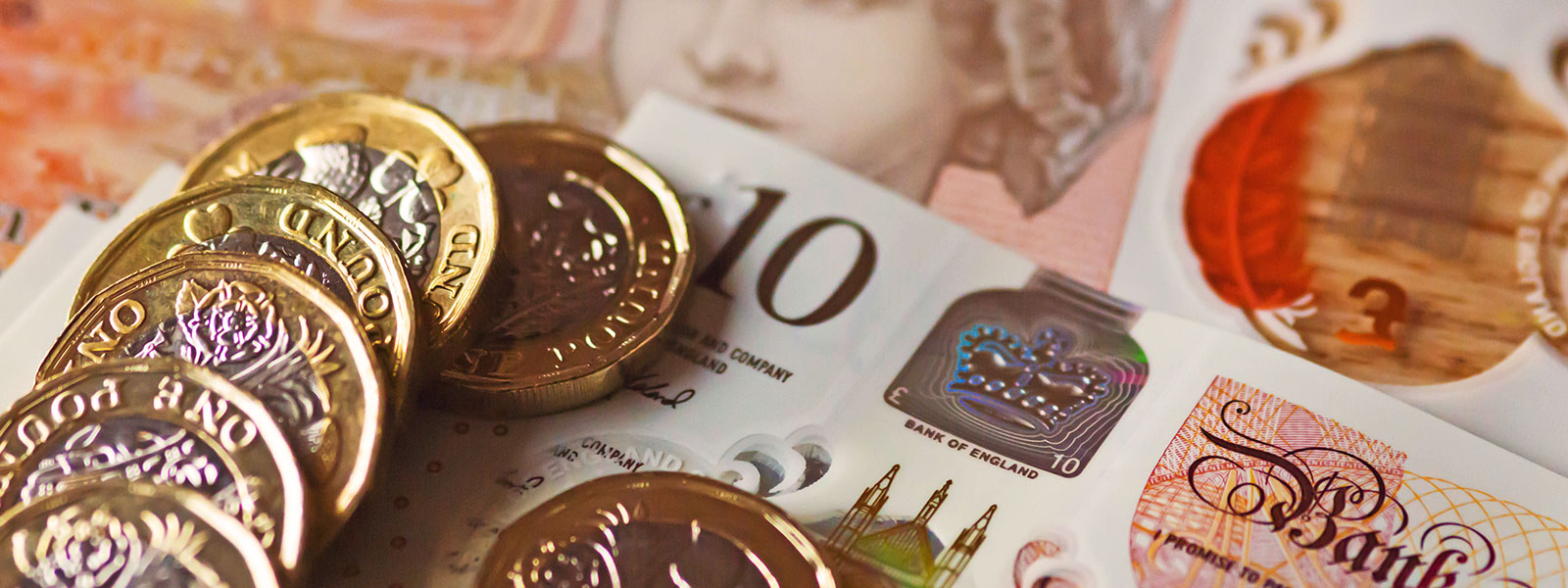Brexit dictates currency moves as Boris takes control
In recent weeks, 24 hours has been a very long time in UK politics. There is nothing short of an all-out Brexit war within the House of Commons.
The ongoing drama, as a result of the Brexit impasse, is playing havoc with the pound’s value and creating significant volatility, which is influenced by the smallest amount of good or bad news.
The pound reached a 23-month low against the euro in August as concerns over a no-deal Brexit escalated. On August 11 it reached €1.06 but has since recovered to €1.12 in September.
Hamish Muress, Senior Currency Strategist at OFX, said: “Although there are some clients who are taking a ‘wait and see’ approach to book transfers, other clients are actually taking advantage of the volatile pound with the right strategy to lock in rates.”
Get in touch: Reach out today to learn more about OFX can help you understand the latest currency market movements

Government attempts to bring back control of the process
All areas of British and Brexit politics are moving at pace, so it is hard to predict exactly where Britain goes next.
With a new deal approved between the UK and Europe, Brexit has now been pushed back to the 31st January. This extension being branded a ‘flextension’ will allow the UK to leave the EU at the end of January, November, or December. Even though Johnson’s withdrawal agreement bill finally secured a majority, the short time frame has seen this extension granted. Despite this, it is important to remember that a no deal Brexit is still a possibility if parliament votes for it in January.
The next factor to influence the pound on the horizon is the general election on the 12th December.
Opinion polls will be the main driver of the pound ahead of the vote, with most bookmakers making a Tory majority the most likely outcome. Despite campaigning on a manifesto to lead the UK out of the EU with PM, Boris Johnson’s renegotiated exit agreement the certainty this would provide is propping up the pound as the chances of a no-deal exit recede.
Should Labour push ahead then this would likely weaken sterling given they are looking to renegotiate the deal and then put it to another public vote. Should the Lib Dems somehow take the lead then this would see a big pound rally given they are looking to revoke Article 50 and keep us in the EU. Both these scenarios are pretty unlikely, however recent election predictions have ended up being wide of the mark so you never know and any erosion of the Tory’s current lead would see the pound slip.
Whilst the pound has been buoyed by the Brexit extension uncertainty is still incredibly high. If there are two things that characterise the pound at the moment, it is high volatility and political uncertainty, and both are set to continue over the next five weeks.
Pound volatility continues
The dollar remains a safe-haven currency on the back of ongoing trade war concerns. GBP/USD was 1.20 on August 10, but again the pound has rallied and is at 1.29 at the time of writing in November. The volatility is unnerving but can be beneficial for businesses who need to move significant amounts of money overseas if they can time it right.
For example, if you’re in the UK and your business needs to buy microchips from Silicon Valley, and you transfer pounds to USD 100,000, the difference between buying USD in August versus a few weeks later could be costly. On August 10 it could have cost £83,333 but at the time of writing on November 4th it could have cost £77,519 – £5,814 less.
Mr Muress said: “The most common question we are asked – and forget about the different scenarios here for a second – is ‘how low can the pound go?’ As things stand, I think we have reached the bottom. We have gone under USD 1.20 when things have looked very uncertain, and that is when it looked like a no-deal Brexit was on the cards.

What can businesses do to plan for Brexit volatility?
Jake Trask, FX Research Director, is working with global businesses to plan ahead in volatile times.
“Brexit uncertainty still continues to hang over sterling. However the ‘flextension’ has lessened the chance of a no deal Brexit, for now, which has supported the pound.
“Those concerned by the damage a no deal Brexit, or a hung parliament, could cause on profit margins should think about forward buying currency now, while sterling has staged a slight recovery.
“Targeting a better rate of exchange via a Limit Order has been a good way to take advantage of recent sterling gains. Or if you import supplies or services from the UK, you may be looking to take advantage of the pound at a weaker moment. Our team of currency experts watch the market 24/7 on your behalf to leverage desired rates of exchange. We automatically buy currency when the rates are beneficial. Our clients count on us to protect their business from uncertainly, more so in this current volatile climate when the timing of a transaction can be critical.”
Talk to OFX to learn more about how we can help you mitigate currency risk with Forward Contracts and Limit Orders.
Britain’s economy on a knife edge
Economically, Britain is still in a difficult position, although the anticipated recession has been staved off for now. GDP grew more than expected in September1, even though it was still only 0.3% up month-on-month.
Yael Selfin, chief economist at KPMG2, said: “Given the time that has passed since the vote was cast, a casual observer would have assumed that by now arrangements between respective governments would have been made, businesses would be prepared and everyone would know what to expect from the future relationship between the UK and the EU.
“The reality is different…[but] a last-minute deal coupled with a two-year transition period could give the UK a respite to find its new place in the world economy. It is rare to live in a period with such bipolar short-term prospects.”
A Brexit deal could boost the pound
What happens to the pound will very much depend on whether a Brexit deal is reached or not, even though a no deal option has all but been taken off the table unless the Government chooses to break the law. KPMG anticipates that a Brexit deal could increase GDP to 1.5% in 2020, tempered by the background of slowing global economic growth.
Even with a deal, the full details of the trading relationship with Europe will take time to resolve, said Ms Selfin, but on news of a deal the pound could appreciate by as much as 10-15%. For businesses trading overseas, the potential strengthening of the pound would be good news if they buy goods and services from outside of the UK.
Register in less than 5 minutes
1https://www.theguardian.com/business/2019/sep/09/uk-recession-economic-growth-gdp
2https://assets.kpmg/content/dam/kpmg/uk/pdf/2019/09/britain-at-a-crossroads.pdf
IMPORTANT: The contents of this blog do not constitute financial advice and are provided for general information purposes only without taking into account the investment objectives, financial situation and particular needs of any particular person. OzForex Limited (trading as OFX) and its affiliated entities make no recommendation as to the merits of any financial strategy or product referred to in the blog. OFX makes no warranty, express or implied, concerning the suitability, completeness, quality or exactness of the information and models provided in this blog.


